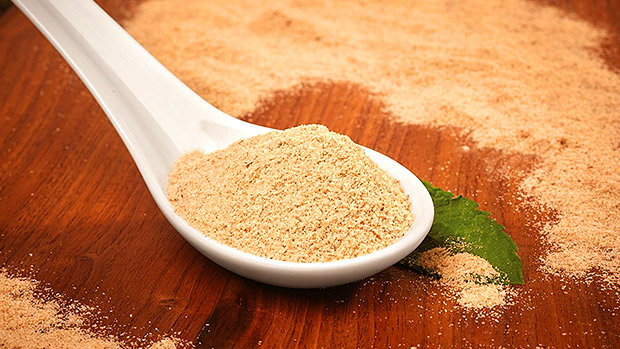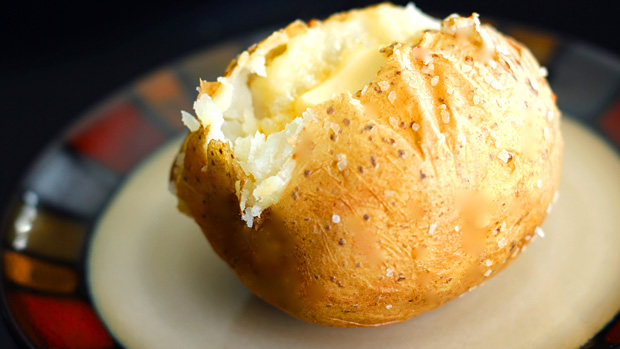Psyllium, found in commercial products like Metamucil, is one of those things that has hidden talents. It's the food equivalent of you and your girlfriend walking down a busy city street and there, in front of you, is a crowd that's formed around a lost little girl, but no one can understand her because she's speaking a foreign language.
You let go of your girlfriend's hand, work your way through the crowd, and start conversing with the hysterical girl in perfect Dutch. She's able to tell you what happened and where she lives and you reunite her with her grateful parents, who happen to be a Baron and Baroness of Holland and you're conferred a Dutch knighthood, wooden shoes, and free passes to the castle of your choice, much to the amazement of your wide-eyed, adoring girlfriend who didn't even know you spoke Dutch!
She then grants you a pleasing physical interaction.
Yeah, that's psyllium. Kind of. Everyone knows that it makes you poop with the regularity of a Japanese commuter train, but it does other great things, too, like making you leaner and even changing your body chemistry for the better. Here's a short list of its hidden talents:
- Psyllium curbs the appetite. Psyllium increases the viscosity of the intestinal tract, which delays intestinal transit time and causes a mild degree of gastric distention (not enough to show or cause discomfort). In short, it makes you feel full so you won't be as likely to hit the snackies.
- Psyllium controls release of ghrelin and Peptide YY. The use of psyllium enhances the effects of these hunger-controlling peptides, thus giving the fiber a second way to control appetite.
- Psyllium helps your body manage blood sugar, insulin, and HbA1c. Study after study shows that psyllium manages fasting blood sugar (FBS) and, consequently, insulin levels. It even leads to a reduction of HbA1C, which is a reading of your average level of blood sugar over the previous 2 or 3 months.
- Psyllium can lead to fat loss. A number of studies involving diabetics or obese people have consistently found that the use of a modest amount of psyllium (5 to 10 grams a day) decreases body mass index (BMI).
- Psyllium prevents calories from being absorbed by the intestines. When you ingest psyllium, it forms a gel that traps nutrients inside it, kind of like the Blob from the old horror movies. This gel prevents these nutrients from the actions of digestive enzymes and makes them less likely to be absorbed. That means that if you take it with carbs, or prior to a carb-heavy meal, you can actually prevent some calories from being absorbed.
- Psyllium lowers cholesterol. Just as psyllium traps certain nutrients, it also traps cholesterol. Use of the fiber lowers both serum and liver cholesterol levels, while possibly raising levels of HDL cholesterol.
- Psyllium aids the immune system. Psyllium provides a substrate for certain microbiota in the large intestine, which leads to the production of short-chain fatty acids that impact the expression of a whole host of genes, among them those that affect the immune system.
- Psyllium may decrease blood pressure and systemic inflammation. The evidence behind these two benefits isn't as strong as the others I listed, but preliminary research suggests psyllium could have a beneficial effect on blood pressure and inflammation.
How to Use Psyllium
- You can buy psyllium as orange-flavored and artificially sweetened Metamucil, or you can buy it in its natural form from granola-ish stores. To use it for general health and make-you-poop purposes, mix and drink one tablespoon with a glass of water (or juice) up to three times a day.
- To use it as an appetite suppressant, take it in-between meals. You can also use it a half-hour before a meal to keep you from pigging out as much.
- Try adding it to soups, bread recipes, sauces, or anything else you can think of to both prevent the absorption of some unwanted calories and to lessen the glycemic load of whatever you're eating.
- Don't take psyllium immediately before or after your workout, though, because those are the times you want unimpeded absorption of nutrients.




